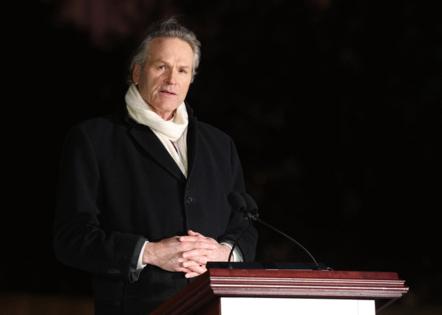Alaska Gov. Mike Dunleavy calls August special session to address education, agriculture
Published in News & Features
Alaska Gov. Mike Dunleavy on Wednesday called for a special session to begin in Juneau next month on the topic of enacting education reforms and creating a new agriculture department.
The one-month special session proclamation comes after lawmakers in the House and Senate majorities have largely rejected Dunleavy's priorities on education reform. Lawmakers succeeded in overriding Dunleavy's veto of an education funding bill shortly before adjourning their regular legislative session in May.
House Speaker Bryce Edgmon, I-Dillingham, said shortly after Dunleavy announced the special session that there was "no prior indication" that a special session was under consideration.
Senate President Gary Stevens, R-Kodiak, called Dunleavy's announcement "disappointing."
"The legislature addressed both of these issues during the regular session, and rather than respecting that process, the Governor is doubling down on proposals that failed to gain legislative support," Stevens said in a written statement.
After Dunleavy vetoed education funding from the budget in June, lawmakers vowed to vote on overriding his veto when they reconvened in January. But leaders of the Senate and House said they would not convene a special session themselves to override the governor over the summer because they wanted to make sure all members were present for the vote, and one member of the bipartisan majority in the Senate was deployed out of the country with the National Guard through the summer.
It was not immediately clear whether that member, Sen. Forrest Dunbar, D-Anchorage, would be able to return to the state for the special session, or how his absence could impact legislative outcomes.
Anchorage Democratic Sen. Bill Wielechowski took to social media to accuse Dunleavy of intentionally calling a special session when one member of the bipartisan caucus was absent in order to increase the odds that lawmakers would fail in overriding the governor's vetoes, which include nixing a bill meant to clarify the legislative auditor's role in reviewing oil and gas tax revenue.
Wielechowski also noted that Dunleavy vetoed $250,000 in funds approved by lawmakers for the purpose of holding a special session.
"After vetoing special session funds, Gov. Dunleavy is now calling us into special session. The reason he is doing this is because the Legislature is required to vote to override vetoes on education and oil and gas audit bills — which potentially are worth billions of dollars in additional oil tax revenue to Alaska — immediately when they go back into session," Wielechowski wrote. "The vote will be very close and he knows at least one member is deployed in the military overseas, making it less likely the vetoes will be overridden."
Lawmakers have convened an education task force that in August was expected to begin several months of work on examining potential education reforms.
"That task force is designed to carefully evaluate funding needs, long-term reform options, and student outcomes. It should be allowed to do its work rather than be bypassed in a rushed special session," Stevens said in his statement.
Dunleavy did not immediately say what education reforms he sought. His office said in an email that an education bill would be available during the first day of the session. He has previously demanded the creation of open enrollment laws, enhancing funding for homeschooling programs and creating new avenues for forming charter schools, among other ideas.
"Enacting a few necessary reforms to our public education system can elevate those children struggling in Alaska's school system," Dunleavy said in a written statement. "As elected officials we must do all we can to put the next generation on the path to a successful and prosperous future, and that starts with a solid public education."
Also on the agenda for the special session, Dunleavy said, was the creation of a new Department of Agriculture. He previously sought to create a new agriculture department through an executive order, which lawmakers rejected in March in a 32-28 vote.
Alaska's agriculture programming is currently housed within the state's Department of Natural Resources. Dunleavy previously estimated the creation of the new department would come at a cost of $2.7 million, but lawmakers including Senate Majority Leader Sen. Cathy Giessel, R-Anchorage, have said it could cost far more, and that the idea should come through a bill rather than an executive order.
Dunleavy said Wednesday he would again propose the idea through an executive order.
"Splitting the Division of Agriculture away from DNR into a department will elevate food security and support our hard-working farmers while growing the agricultural sector," Dunleavy wrote.
Stevens said that Dunleavy himself had raised concerns over expanding government at a time of low oil revenue.
"Now he wants to expand government by creating an entirely new department. That contradiction does not escape Alaskans, especially as essential services are being cut under the guise of fiscal restraint," Stevens wrote.
Under Dunleavy's proclamation, the 30-day special session would begin at 10 a.m. Saturday, Aug. 2 in Juneau.
_____
© 2025 the Alaska Dispatch News (Anchorage, Alaska). Visit www.adn.com. Distributed by Tribune Content Agency, LLC.







Comments